 Petzlover
Petzlover Birman is originated from France but York Chocolate Cat is originated from United States. Both Birman and York Chocolate Cat are having almost same weight. Both Birman and York Chocolate Cat has same life span. Both Birman and York Chocolate Cat has same litter size. Both Birman and York Chocolate Cat requires Moderate Maintenance.
Birman is originated from France but York Chocolate Cat is originated from United States. Both Birman and York Chocolate Cat are having almost same weight. Both Birman and York Chocolate Cat has same life span. Both Birman and York Chocolate Cat has same litter size. Both Birman and York Chocolate Cat requires Moderate Maintenance.
 There isn’t clarity as to this exquisite cat’s origins. Many people believe they originated as the companions of temple priests in northern Burma.
There isn’t clarity as to this exquisite cat’s origins. Many people believe they originated as the companions of temple priests in northern Burma.
The cats somehow found their way to France, and it is believed that they have been in France since the 1920s.
The cats nearly disappeared during World War II, but luckily the remaining Birmans that survived were crossed with Siamese and Persians to strengthen the breed. In the early 1950s, pure Birnam litters were produced. It was in about 1959 that Birmans were brought to the United States.
The cats were also recognized in Britain in 1965 and in 1966 by the CFA. The first Birman cats were seal point but later other colors were brought in such as red, chocolate, and tabby.
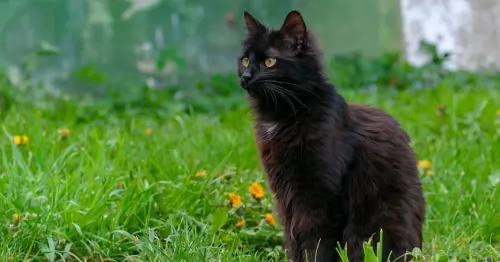 The York Chocolate cat is often referred to simply as the York. The cat was developed in New York in 1983 by breeder Janet Chiefari. The American breed of cat came about by selecting certain colors for breeding.
The York Chocolate cat is often referred to simply as the York. The cat was developed in New York in 1983 by breeder Janet Chiefari. The American breed of cat came about by selecting certain colors for breeding.
The breed isn’t recognized by cat registries, however, in March 1990, the Cat Fanciers’ Federation of the New England area recognized York Chocolates as an experimental cat breed.
By 2016 no registry carried its breed standard and it looks as though the cat is now extinct. Later is was also established that the International York Chocolate Federation was founded in 2003 but that the site seems to be archived.
 These are medium-sized cats which can become fairly large. They can weigh up to 4, 5 or 6kg. They are fairly heavily boned with a broad face and ears that are widely spaced.
These are medium-sized cats which can become fairly large. They can weigh up to 4, 5 or 6kg. They are fairly heavily boned with a broad face and ears that are widely spaced.
The round eyes are deep blue. The cat’s fur is medium-long and should be silky to the touch with no undercoat. Ther cat is a moderate shedder.
The base color is whitish to cream, but the kittens are always born white. Coat color, whether red, cream, or chocolate is always pointed and the cat always has the white paws.
The Birman isn’t as outgoing as some of the other cat breeds and its a quiet, docile intelligent cat that attaches itself to one particular family member. They can actually become jealous of their human companion and demand their attention.
These friendly cats are wonderful choices for families with children and dogs. They are calm and affectionate, and softly spoken, quietly letting you know when it’s dinner time and enjoying just being around his human family.
He is able to get along well with kids and other pets in the home. He can become quite playful too and because he is so intelligent, you can buy him some toys that require him to think.
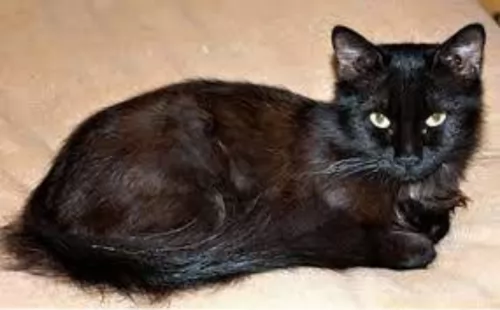 Today the breed is still under development and in the experimental stages. It is a medium to large cat, both robust, sturdy, and muscular.
Today the breed is still under development and in the experimental stages. It is a medium to large cat, both robust, sturdy, and muscular.
He can weigh up to 7 or 8 kg. The head is medium-sized with a rounded muzzle and the ears fairly large, pointed and tufted and broad at the base.
The eyes are medium in size, almond-shaped, and slanted slightly. The color of the eyes is a striking gold, green, or hazel.
The legs are also medium to long in length and well-muscled with the hind legs being a bit longer than the forelegs. The coat is medium to long, smooth and glossy with no undercoat. Color of the coat is mainly a rich chocolate color or silver, black and white.
The York Chocolate is a loyal and friendly cat. He is independent and although he loves his human family, he is perfectly happy on his own as well. They make wonderful pets as they get on well with children and also with other pets in the home.
They’re even-tempered and adapt well to all kinds of lifestyles. What is notable about this cat is that even if you tend to ignore him, he wants to lavish you with his attention. He is a cat that just loves to spend time with his human family.
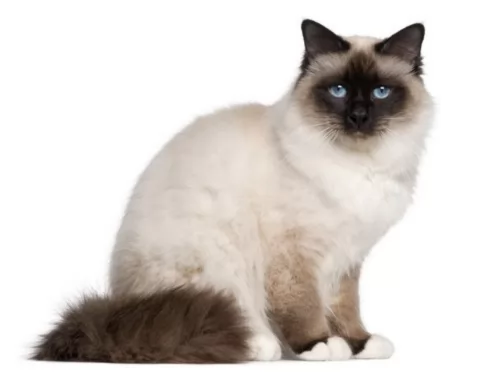 The Birman cat has to be one of the most beautiful cats there are, but the cat isn’t only a beautiful cat, it has wonderful characteristics as well.
The Birman cat has to be one of the most beautiful cats there are, but the cat isn’t only a beautiful cat, it has wonderful characteristics as well.
It is a loving, affectionate cat with his human family, loving to spend time around them. Playful and healthy, when you bring this most wonderful cat into your home, it will be as though an angel has come to stay.
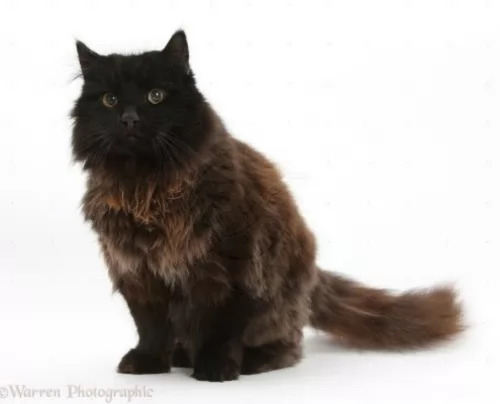 The York Chocolate is an ideal breed for families but he will get along well with single people too who are willing to make a fuss of him.
The York Chocolate is an ideal breed for families but he will get along well with single people too who are willing to make a fuss of him.
He is the kind of cat that makes himself at home indoors or outdoors. He has such an amicable nature and wants to be your friend. In return for this friendship, he needs to be given a whole lot of love and attention.
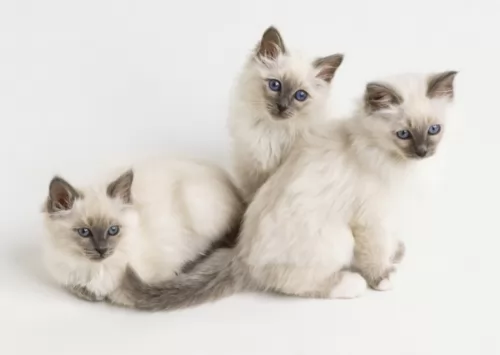 With good health your Birman can reach up to 13 years of age. With the Birman, the most serious illness is feline hypertrophic cardiomyopathy which also happens to be the most common heart disease in cats.
With good health your Birman can reach up to 13 years of age. With the Birman, the most serious illness is feline hypertrophic cardiomyopathy which also happens to be the most common heart disease in cats.
It’s a progressive disease and can result in heart failure. The cats are also at risk of developing feline infectious peritonitis.
Also, because this is a larger cat and a stocky kind of breed, it can easily put on weight and then become overweight. Strict attention will need to be given to diet as well as daily exercise.
Also, look out for Corneal dermoid - skin and hair on the surface of the cornea in one eye or in both. Luckily this is an eye problem that can be surgically corrected.
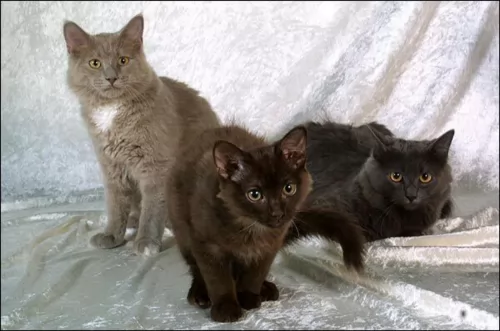 York Chocolates are generally considered to be healthy cats, but always schedule regular wellness visits with the vet if you suspect even the smallest illness.
York Chocolates are generally considered to be healthy cats, but always schedule regular wellness visits with the vet if you suspect even the smallest illness.
The insides of the cat’s ears should be examined regularly for signs of dirt and wax build-up that can lead to an infection.
The trend these days is to brush your cat’s teeth. This can absolutely traumatize your cat. When you take your cat for a check-up he will in any case look inside your cat’s mouth to make sure there aren't any bad teeth.
As a cat owner, it is a good idea to recognize the signs and symptoms of common illnesses in your cat. Cancer
Cats can get different kinds of cancer – where cells grow uncontrollably and spread to all parts of the body.
When a cat doesn't produce insulin, his blood sugar levels elevate and this can result in hyperglycemia.
Rabies is a viral disease that affects the brain and spinal cord. It's a deadly disease that can be prevented by vaccination.
Vomiting is a common problem with cats with many different causes. The danger with vomiting is that it can lead to dehydration,
A cat’s upper respiratory tract is susceptible to infections caused by a variety of viruses and bacteria.
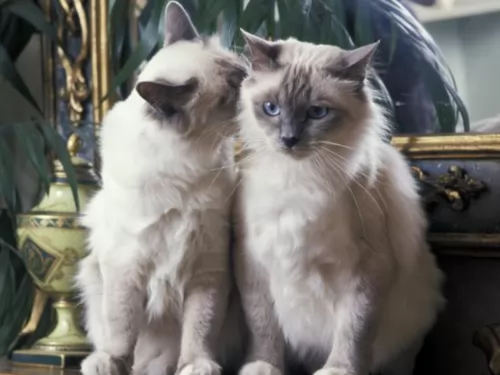 The Birman has a silky coat that sheds moderately so you want to give him a gentle brush once or twice a week to keep the coat of his soft and silky.
The Birman has a silky coat that sheds moderately so you want to give him a gentle brush once or twice a week to keep the coat of his soft and silky.
The Birman has a full topcoat, with no undercoat which means that you won’t have the coat matting or tangling.
He’ll need his nails trimmed and his teeth checked regularly. Your vet or professional groomers can do this for you and clean his teeth and check that there are no bad teeth making your pet sick.
The Birman cat has access to some great commercial cat food as there are some seriously good quality ones.
Many cat lovers choose cat foods that are AAFCO (Association of American Feed Control Officials) approved. It at least provides minimum standards for pet foods.
For your Birman you want to avoid artificial flavors and preservatives. Choose quality foods high in meat protein. As a carnivore, a cat has a huge need for meat protein. Get to know your pet food labels and choose foods with added taurine and vitamin A.
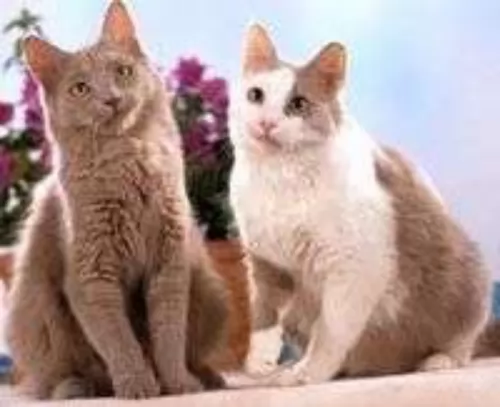 The coat of the York Chocolate is fairly short and it doesn't shed heavily. A weekly brush will suffice to help remove dirt and loose hairs as well as to maintain the coat’s sheen.
The coat of the York Chocolate is fairly short and it doesn't shed heavily. A weekly brush will suffice to help remove dirt and loose hairs as well as to maintain the coat’s sheen.
A high-quality diet high in protein and animal meat must be provided for your cat Cats are carnivores and are not plant eaters.